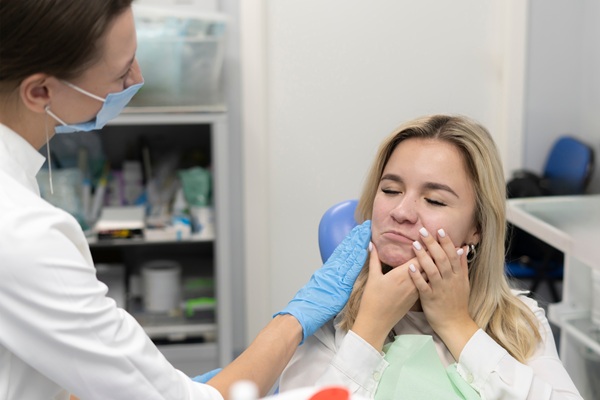Oral Hygiene Basics: Try to Stop Gum Disease Before it Starts

Keeping your gums healthy needs to be a key priority in your oral care routine. Effective care at home and at your dentist's office can prevent gum disease, a chronic condition that puts your overall oral health in jeopardy. Chronic or severe gum disease can lead to infections, loose teeth, and eventually permanent tooth loss. However, it can also have a negative impact on your overall health.
Studies have shown that periodontal disease can significantly increase your risk for serious diseases, including:
- Diabetes
- Heart Disease
- Arthritis
- Kidney Problems
- Cancer
- Pregnancy Problems
- Stroke
According to the Centers for Disease Control and Prevention, approximately 47% of adults over the age of 30 have some type of gum disease. This number increases dramatically with age, rising to over 70% by age 65. Gum disease is a widespread issue, but in many cases, it is almost completely preventable. Proper home and professional care can dramatically reduce your chances of developing serious periodontal disease. In addition to seeing your dentist at least twice a year for routine cleanings and screenings, make sure that your dental hygiene regimen adequately protects your gums.
Use proper brushing techniques
Toothbrushing is important but it is possible to do it the wrong way. The right techniques can help you effectively remove plaque and bacteria while protecting both soft and hard tissues from damage and discomfort.
Brush your teeth
Rapid motions back and forth are not the ideal way to brush your teeth. Slow circular movements with care to reach every section of your mouth is the correct approach. You should brush your teeth for at least two minutes to spend enough time covering the surface area of every tooth.
In order to remove bacteria from your gums, you need to be able to clear all of the plaque that has accumulated along the gum line. Ensure that your brush strokes reach your gums and do not just cover the top of your teeth. Brushing below the gum line is one of the most essential oral hygiene basics.
Whether you use a manual or electric toothbrush, it is important that it has soft bristles. Having bristles that are too firm is likely to cause brushing your gums to be uncomfortable or create irritation. Soft bristles will allow you to brush the gum line thoroughly. This prevents the accumulation of tartar and germs that can inflame the gums and cause large pockets to form between your teeth and gums.
The minimum number of times that you should brush your teeth every day is twice. You may benefit from brushing more often. Many people prefer to brush three or four times a day. In general, it is advisable to brush after every meal.
Clean your tongue
When you are brushing your teeth, do not skip your tongue. A clean tongue is a frequently overlooked element of oral hygiene basics, but this part of your mouth can host a lot of bacteria. In fact, much of the bacteria that causes bad breath is on people’s tongues. This bacteria can spread throughout your entire mouth and get trapped in between your gums and your teeth.
To clean your tongue effectively, you can use your toothbrush to reach the back of your tongue. However, you may find that a tongue scraper works well to strip away buildup.
Rinse and floss
After you brush, an antiseptic rinse with fluoride will sanitize your gums and fortify your teeth's enamel. Antiseptic agents in rinses that prevent gingivitis will also make your breath noticeably fresh.
If your gums become especially irritated by certain products such as rinses containing alcohol or whitening products with harsh chemicals, look for an alternative product that does not produce those effects. Gums that are continually irritated are more susceptible to gum disease.
Flossing every day is one of the most crucial oral hygiene basics to combat gingivitis. When flossing and loosening food and plaque that is trapped between your teeth, you proactively prevent the formation of bacteria.
Conclusion
Gum disease is a common yet serious problem that can lead to a number of unwanted side effects, jeopardizing your oral and overall health. Fortunately, periodontal issues are preventable for many people. A few simple changes to your dental care routine can benefit your gum health significantly. By protecting your gums from disease, you will also protect your teeth from decay, improving your smile and your health.
Request an appointment here: https://www.lilburnfamilydentistry.com or call Lilburn Family Dentistry at (770) 800-0178 for an appointment in our Lilburn office.
Check out what others are saying about our dental services on Yelp: Gum Disease in Lilburn, GA.
Recent Posts
Gum disease is a common yet serious condition that negatively impacts oral health if left untreated. The condition can result from plaque and bacteria buildup, starting with mild symptoms and leading to tooth loss. Knowing the stages of gum disease and when to seek treatment can help protect your gums and teeth.Gum disease, or periodontal…
Gum disease starts with the growth of bacteria in the mouth. When brushing or flossing does not remove this bacteria, harmful plaque accumulates and hardens into tartar. The collection of tartar along the gum line results in gingivitis, which can worsen into periodontal disease. Symptoms of this disease can be mild in the early stages,…
The CDC reports that almost half of adults in the United States have a form of gum disease, also known as periodontitis or periodontal disease. For adults over 65, this number increases to 70%. This rampant disease is largely preventable, yet the subtle signs and symptoms in the early stages leave many patients unaware that…
Gum disease is one of the most common oral health issues. Many individuals, however, are unaware that they are dealing with the condition. Gum disease is believed to affect millions of adults in the United States, according to the International Journal of Health Sciences. Many people who do not currently have gum disease may develop…


